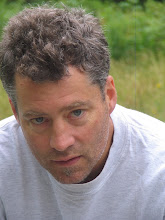
Revenge of a mortal hand.
—Wislawa Szymborska
We mostly worked on the play; we stood around the screen with the play lines projected there and read, all gathered up in a semi-circle; we set up the basement stage. A crew of “rats, mice, and squirrels" set up all the switches and cords and lights in the light booth. Other things going on: earths hanging from strings, volcanoes labeled; solar system diagrams; movies, brochures, songs, and advertising jingles on why various places in the Solar System might be Utopian Getaway Vacation Spots. Land roving on Mars? Windsailing on Neptune in 1000 KM winds? In addition, apparently, there is a play being written in the Math Room. I think this has to do with something about characters who play geometrical shapes in a murder mystery thriller. "Clue," Geometrical proofs, and Tennessee Williams all combined.

On Thursday we wrote scraps of poems about what we all might want to find if we parted the gray curtain of the Radley’s house. What would the distant golden glowing light in the recesses of the house be? What would we wan to see in that straining glimpse? What would be in Dolphus Raymond’s paper sack? What would we wish to find or put in the knot-hole of a great live oak? In the center of a candy box, surrounded by soft white cotton, what flower would be resting there? Or in the corner of a littered yar, the six red geraniums: what would those geraniums be for us? What would we extend on our cane fishing pole to the window to give to a hidden person, who might even be ourselves?
We are going to use these in the play somehow or another. In the meantime we read three stories on Friday, and it was pointed out that each of them dealt with loss and change, the response to loss and change, and the inevitable learning that comes from those experiences. We surmised that the only thing we have to hold and keep things that are dear to us that fall away is the telling of the story of them. We tell the story, we write it, we commit it to our own memory in the most vivid and potent form, we place it somewhere where it can be seen and understood by ourselves and others, and then it takes on greater substance. In relation to decay, mortality, and the ravages of time it becomes a monument to what matters most.
I said that at the recent alumni gathering we all came together and mostly all we did was tell old stories of what happened, the big stuff and the little stuff, way back some years ago. We hold onto the stories, and we tell them again and again, because that keeps the things of the stories for disappearing. It was then pointed out by the kids that our writing of stories, of capturing some element of time in a box or in pages, of recreating someone’s life or character in a story, is what Wislawa Szymborska wrote about when she said that writing is “the revenge of a mortal hand.” Our hands are mortal, but what we make with our hands is not.

No comments:
Post a Comment